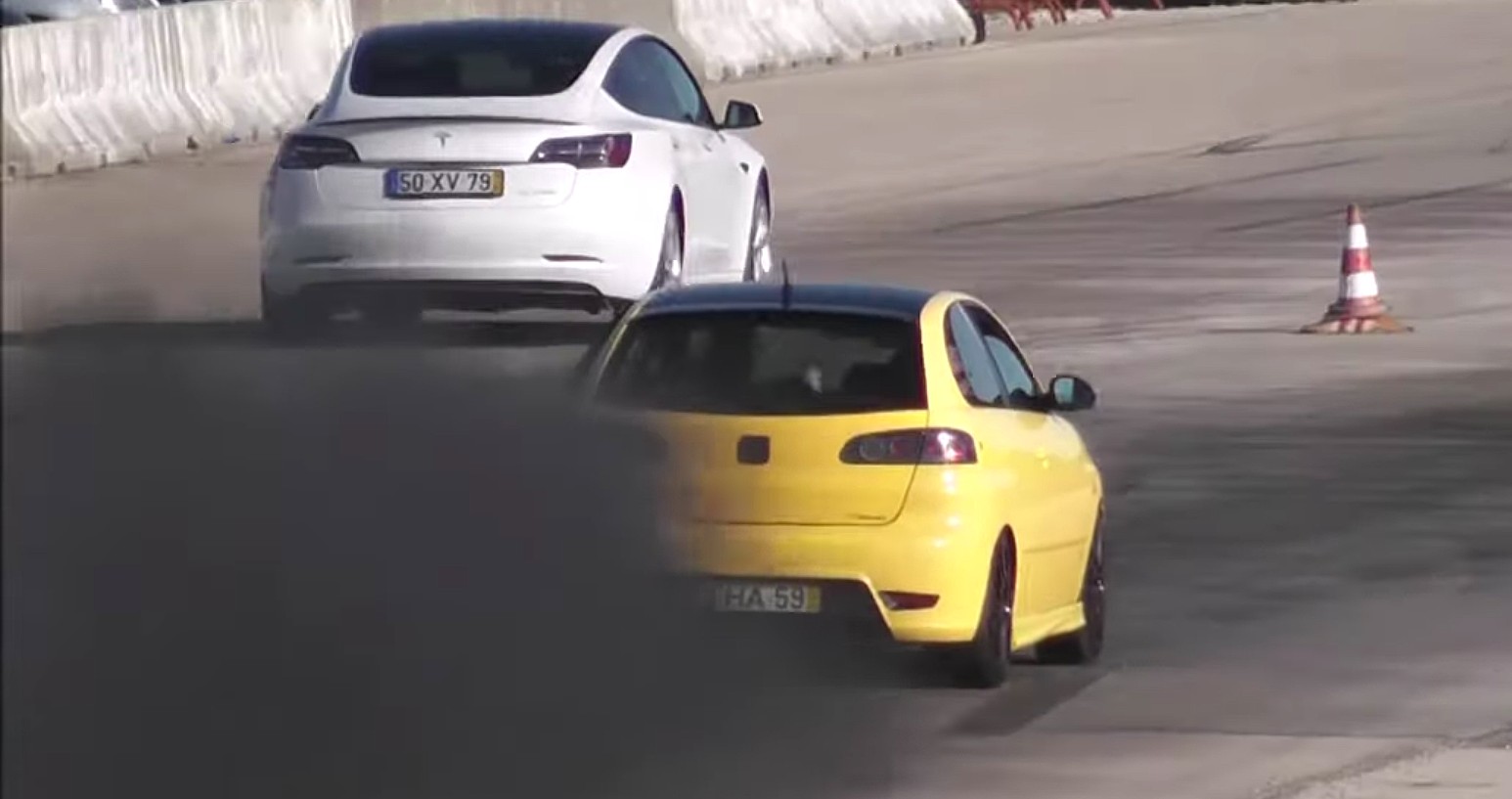
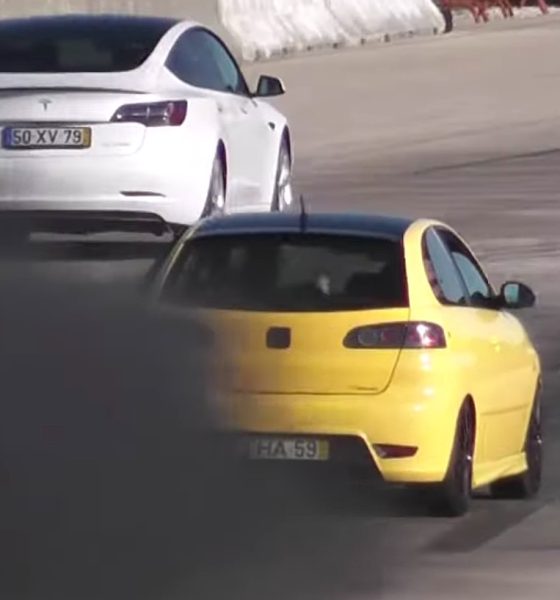
News
Electric Vehicle lifecycle study once again proves lower emissions, debunking “clean petrol” myth
Critics of the electric car movement have long used the argument that an EV’s manufacturing process cancels out its positive environmental impact. However, a new study from multiple European universities titled “Net emission reductions from electric cars and heat pumps in 59 world regions over time,” shows that electric vehicles are more emissions-friendly than their petrol-based counterparts.
“We show that already under current carbon intensities of electricity generation, electric cars and heat pumps are less emission-intensive than fossil-fuel-based alternatives in 53 world regions, representing 95% of the global transport and heating demand,” the report’s abstract states.
Researchers at Cambridge, Exeter, and Dutch college Nijmegen University performed the study, which concluded that the myths surrounding electric vehicles and their possibly unfavorable impact on the environment only occurs in 1/20th of the world. Poland is the most notable country where this happens is, the BBC initially reported.
Researchers based their conclusions on the fact that “lifetime” emissions, meaning the amount of pollution a vehicle contributes toward the environment over the entire duration that the car is operable,w are up to 70% lower than petrol vehicles in countries where electricity comes from renewables and nuclear. France and Sweden are just two countries that fit this description.
Meanwhile, the United Kingdom offers around 30% less pollution for electric cars.
The lead author for the study, Dr. Florian Knobloch, states, “The idea that electric vehicles could increase emissions is a complete myth.”
The study indicates that as countries begin to maneuver toward more sustainable forms of energy, these figures will rise. With many countries around the world implementing petrol-bans that will take effect between 2030 and 2040, these numbers will grow as solar, wind, and other forms of clean energy are being used on a more broad scale.
Researchers also predicted in their report that at least 50% of the world’s vehicles could be electric by 2050. If this were the case, 1.5 gigatonnes of CO2 could be eliminated from the Earth’s atmosphere, a figure that is currently equivalent to the current emissions rate of Russia.
“We’ve seen a lot of discussion about this [topic] recently, with lots of disinformation going around,” Knobloch added.
Critics of the EV movement often point to battery production as being the most polluting part of a battery electric vehicle’s lifespan. This myth was dispelled in December 2019, when the IVL Swedish Environmental Research Institute, one of the firms responsible for the original anti-EV claim, completed a new study that showed a significant decline in CO2 emissions during lithium-ion battery production.
The explanation for this decrease in emissions is due to larger-scale battery production as EVs become more popular, and their power source is in higher demand.
The only remaining issue is getting countries all around the world to adapt to the electric vehicle movement. While the UK has implemented a 2050 climate goal of bringing greenhouse gases to net-zero, it ultimately falls on a consumer’s need for a new car, and whether they will choose to buy electric. With price parity with gas vehicles expected to be reached by 2023, cost will no longer be an issue.

News
Tesla is making two big upgrades to the Model 3, coding shows
According to coding found in the European and Chinese configurators, Tesla is planning to make two big upgrades: Black Headliner offerings and a new 16-inch QHD display, similar to that on the Model Y Performance.
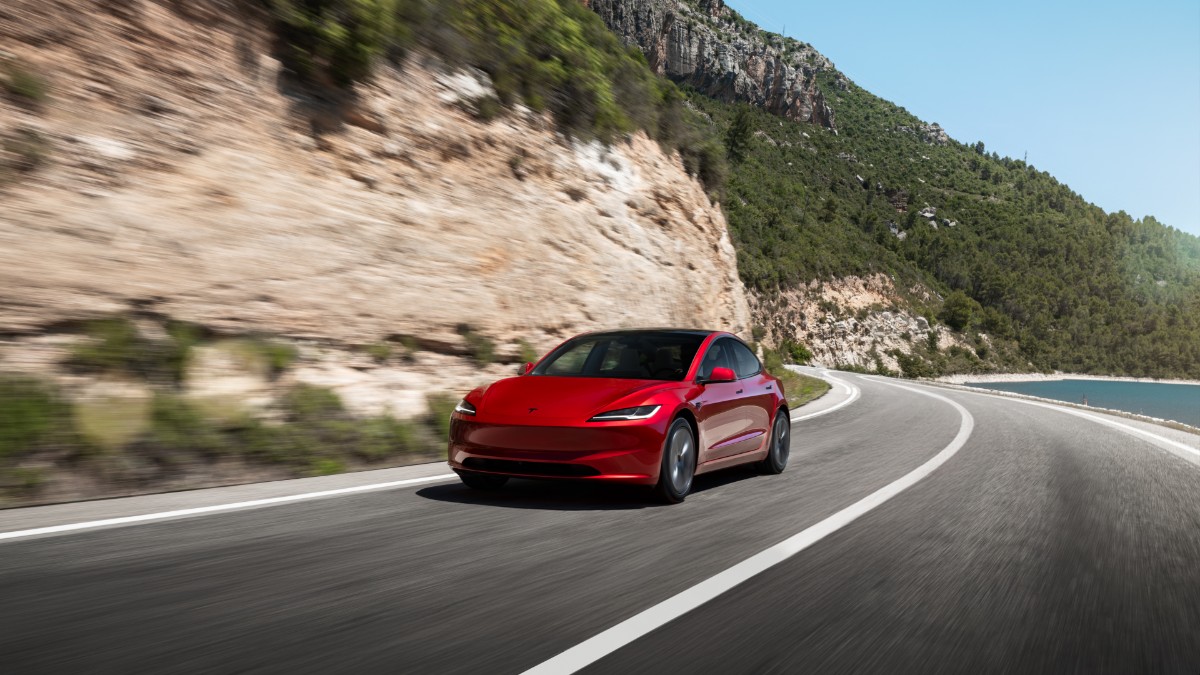
Tesla is making two big upgrades to the Model 3, one of which is widely requested by owners and fans, and another that it has already started to make on some trim levels of other models within the lineup.
The changes appear to be taking effect in the European and Chinese markets, but these are expected to come to the United States based on what Tesla has done with the Model Y.
According to coding found in the European and Chinese configurators, Tesla is planning to make two big upgrades: Black Headliner offerings and a new 16-inch QHD display, similar to that on the Model Y Performance.
These changes in the coding were spotted by X user BERKANT, who shared the findings on the social media platform this morning:
🚨 Model 3 changes spotted in Tesla backend
• New interior code: IN3PB (Interior 3 Premium Black)
• Linked to Alcantara-style black headliner
• Mapped to 2026 Model 3 Performance and Premium VINs• EPC now shows: “Display_16_QHD”
• Multiple 2026 builds marked with… pic.twitter.com/OkDM5EdbTu— BERKANT (@Tesla_NL_TR) February 23, 2026
It appears these new upgrades will roll out with the Model 3 Performance and Tesla’s Premium trim levels of the all-electric sedan.
The changes are welcome. Tesla fans have been requesting that its Model 3 and Model Y offerings receive a black headliner, as even with the black interior options, the headliner is grey.
Tesla recently upgraded Model Y vehicles to this black headliner option, even in the United States, so it seems as if the Model 3 will get the same treatment as it appears to be getting in the Eastern hemisphere.
Tesla has been basically accentuating the Model 3 and Model Y with small upgrades that owners have been wanting, and it has been a focal point of the company’s future plans as it phases out other vehicles like the Model S and Model X.
Additionally, Tesla offered an excellent 0.99% APR last week on the Model 3, hoping to push more units out the door to support a strong Q1 delivery figure at the beginning of April.
Elon Musk
SpaceX secures FAA approval for 44 annual Starship launches in Florida
The FAA’s environmental review covers up to 44 launches annually, along with 44 Super Heavy booster landings and 44 upper-stage landings.
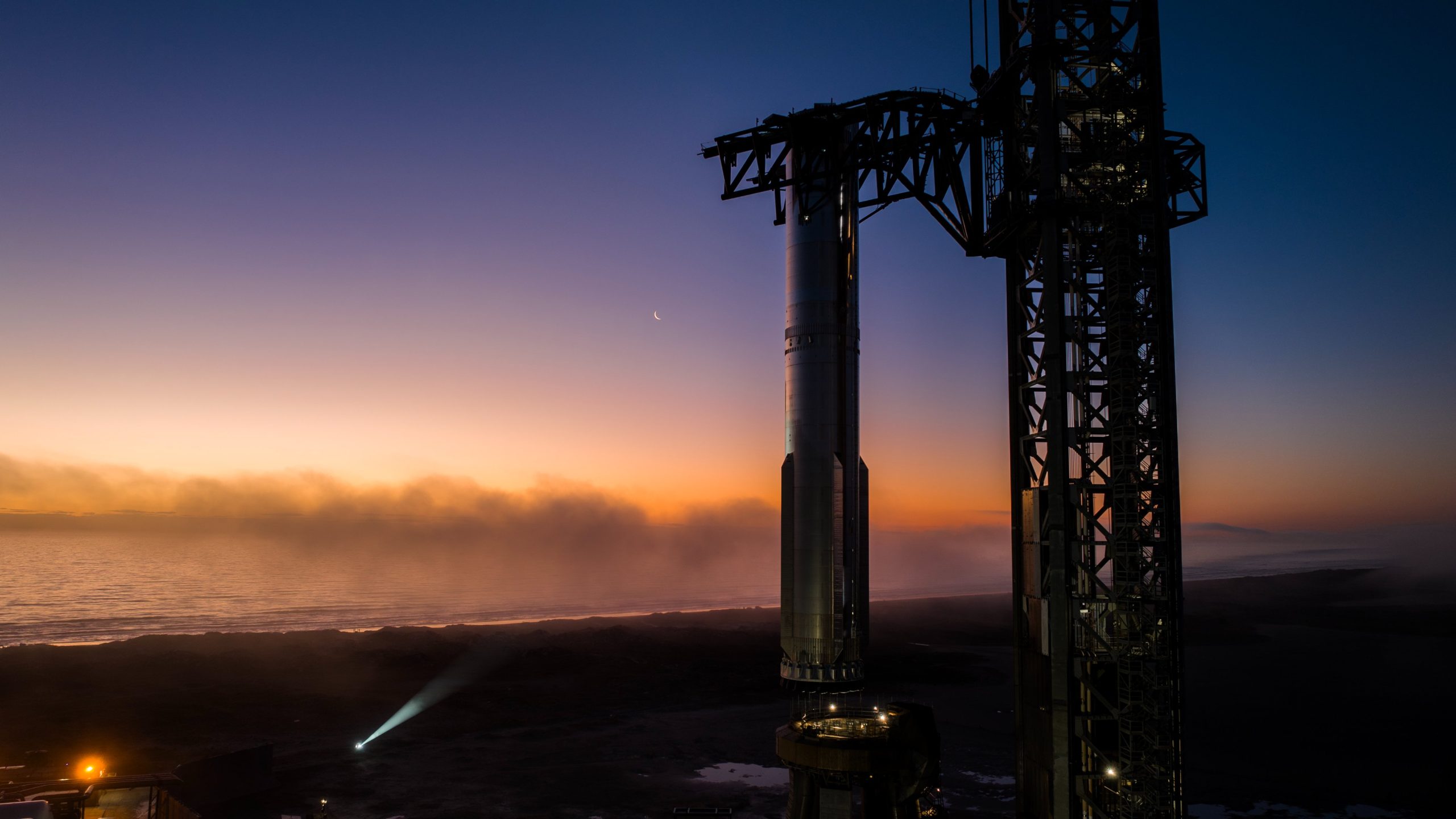
SpaceX has received environmental approval from the Federal Aviation Administration (FAA) to conduct up to 44 Starship-Super Heavy launches per year from Kennedy Space Center Launch Complex 39A in Florida.
The decision allows the company to proceed with plans tied to its next-generation launch system and future satellite deployments.
The FAA’s environmental review covers up to 44 launches annually, along with 44 Super Heavy booster landings and 44 upper-stage landings. The approval concludes the agency’s public comment period and outlines required mitigation measures related to noise, emissions, wildlife, and airspace management.
Construction of Starship infrastructure at Launch Complex 39A is nearing completion. The site, previously used for Apollo and space shuttle missions, is transitioning to support Starship operations, as noted in a Florida Today report.
If fully deployed across Kennedy Space Center and nearby Cape Canaveral Space Force Station, Starship activity on the Space Coast could exceed 120 launches annually, excluding tests. Separately, the U.S. Air Force has authorized repurposing Space Launch Complex 37 for potential additional Starship activity, pending further FAA airspace analysis.
The approval supports SpaceX’s long-term strategy, which includes deploying a large constellation of satellites intended to power space-based artificial intelligence data infrastructure. The company has previously indicated that expanded Starship capacity will be central to that effort.
The FAA review identified likely impacts from increased noise, nitrogen oxide emissions, and temporary airspace closures. Commercial flights may experience periodic delays during launch windows. The agency, however, determined these effects would be intermittent and manageable through scheduling, public notification, and worker safety protocols.
Wildlife protections are required under the approval, Florida Today noted. These include lighting controls to protect sea turtles, seasonal monitoring of scrub jays and beach mice, and restrictions on offshore landings to avoid coral reefs and right whale critical habitat. Recovery vessels must also carry trained observers to prevent collisions with protected marine species.
Elon Musk
Texas township wants The Boring Company to build it a Loop system
The township’s board unanimously approved an application to The Boring Company’s “Tunnel Vision Challenge.”
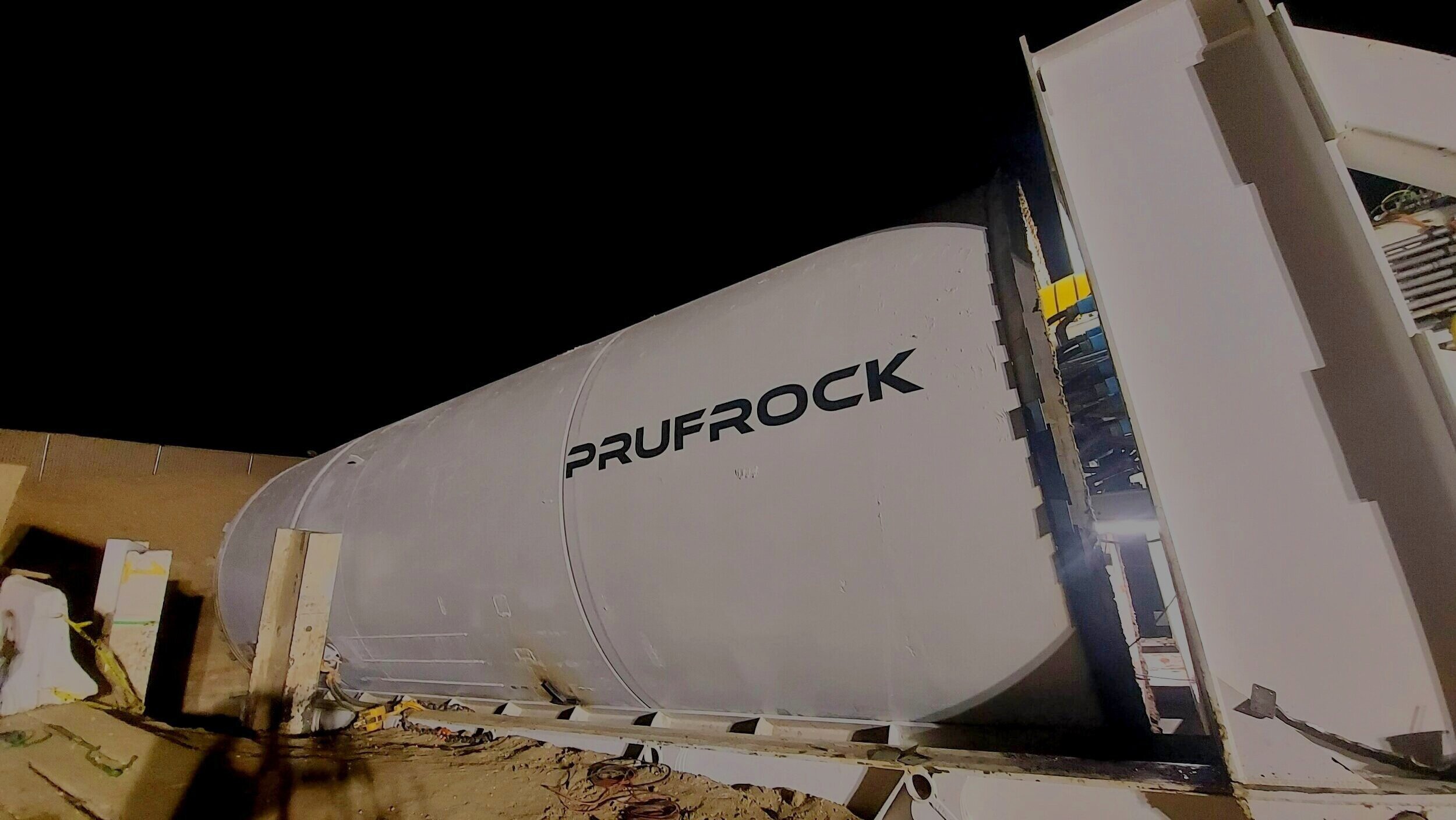
The Woodlands Township, Texas, has formally entered The Boring Company’s tunneling sweepstakes.
The township’s board unanimously approved an application to The Boring Company’s “Tunnel Vision Challenge,” which offers up to one mile of tunnel construction at no cost to a selected community.
The Woodlands’ proposal, dubbed “The Current,” features two parallel 12-foot-diameter tunnels beneath the Town Center corridor near The Waterway. Teslas would shuttle passengers between Waterway Square, Cynthia Woods Mitchell Pavilion, Town Green Park and nearby hotels during concerts and large-scale events, as noted in a Chron report.
Township officials framed the tunnel as a solution for the township’s traffic congestion issues. The Pavilion alone hosts more than 60 shows each year and can accommodate crowds of up to 16,500, often straining Lake Robbins Drive and surrounding intersections.
“We know we have traffic impacts and pedestrian movement challenges, especially in the Town Center area,” Chris Nunes, chief operating officer of The Woodlands Township, stated during the meeting.
“The Current” mirrors the Loop system operating beneath the Las Vegas Convention Center, where Tesla vehicles transport passengers through underground tunnels between venues and resorts.
The Boring Company issued its request for proposals (RFP) in mid-January, inviting cities and districts to pitch local uses for its tunneling technology. The Woodlands must submit its application by Feb. 23, though no timeline has been provided for when a winning community will be announced.
Nunes confirmed that the board has authorized a submission for “The Current’s” proposal, though he emphasized that the project is still in its preliminary stages.
“The Woodlands Township Board of Directors has authorized staff to submit an application to The Boring Company, which has issued an RFP for communities interested in leveraging their technology to address community challenges,” he said in a statement.
“The Board believes that an underground tunnel would provide a safe and efficient means to transport people to and from various high-use community amenities in our Town Center.”








